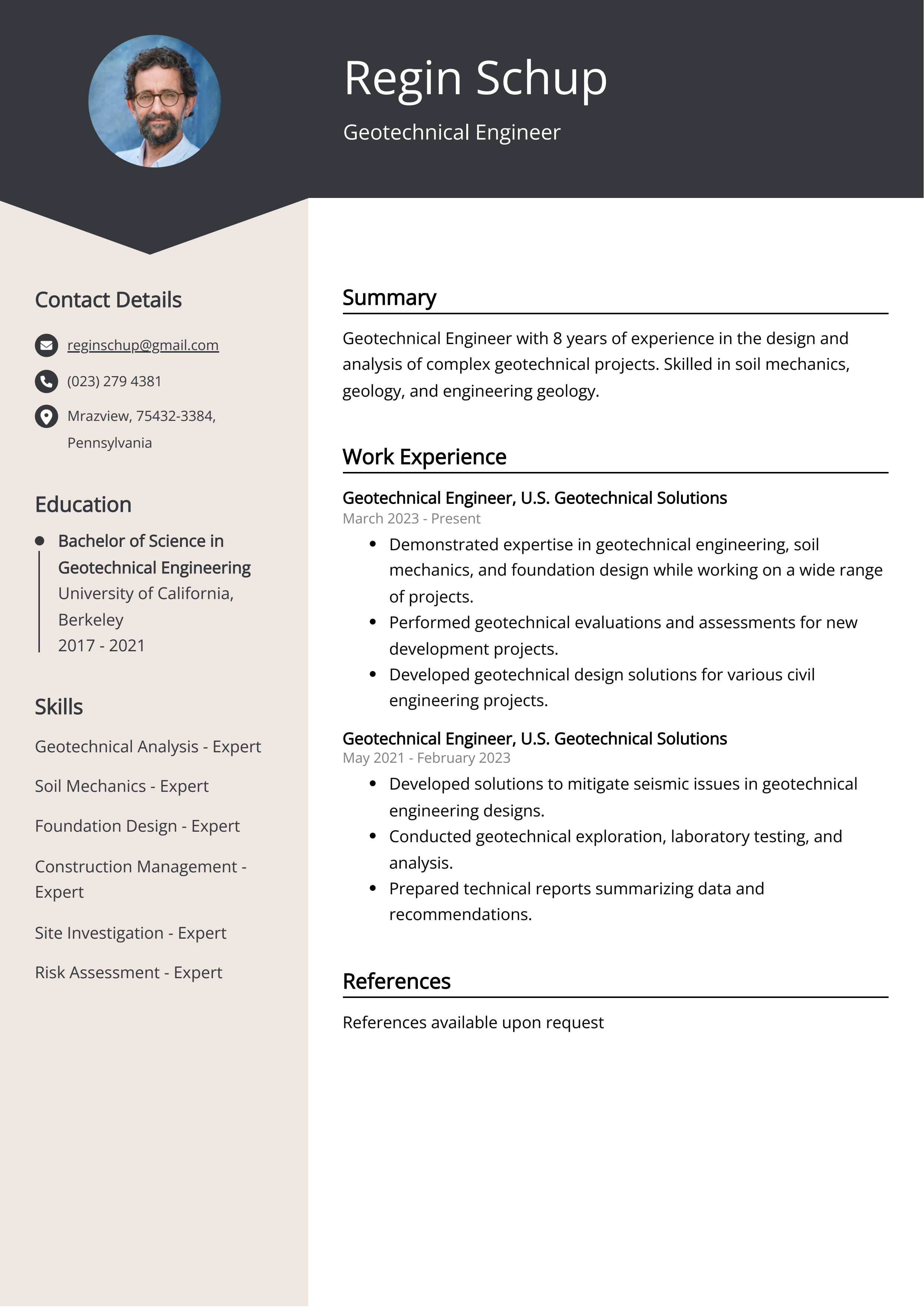Geotheta Can Be Fun For Anyone
Table of ContentsThe smart Trick of Geotheta That Nobody is Discussing3 Simple Techniques For GeothetaThe Only Guide for GeothetaThe Ultimate Guide To GeothetaGeotheta for Dummies

They perform website examinations, collect examples, execute lab tests, and examine information to examine the viability of the ground for building tasks - Consulting Engineer. Based on their findings, geotechnical designers give suggestions for structure design, incline stability, maintaining structures, and mitigation of geotechnical dangers. They collaborate with various other experts, such as architects, architectural designers, and building groups, to guarantee that geotechnical considerations are incorporated into the overall job style and execution
By evaluating the actions and homes of dirt and rock, they can determine potential geotechnical threats such as landslides, dirt negotiation, or incline instability. Their experience aids prevent failings or mishaps that can jeopardize lives and building. Below are some detailed responsibilities and responsibilities of a geotechnical engineer: Site Examination: Geotechnical designers conduct website investigations to gather information on subsurface conditions.
They analyze the data to comprehend the residential or commercial properties and habits of the dirt and rock, including their strength, leaks in the structure, compaction characteristics, and groundwater conditions. Geotechnical Evaluation and Layout: Geotechnical engineers examine the data gathered during site investigations to evaluate the stability and suitability of the site for construction projects. They carry out geotechnical computations and modeling to assess variables such as bearing capacity, negotiation, incline stability, side earth pressures, and groundwater circulation.
Geotheta for Dummies
Foundation Design: Geotechnical designers play a vital role in designing foundations that can safely sustain the designated structure. They assess the soil problems and lots requirements to identify the proper structure kind, such as shallow structures (e.g., grounds), deep foundations (e.g (https://www.abnewswire.com/companyname/geotheta.com_139529.html#detail-tab)., piles), or specialized methods like dirt renovation. They take into consideration elements such as settlement limitations, bearing ability, and soil-structure interaction to create optimum structure designs
They review construction strategies, monitor website activities, and perform field inspections to validate that the layout referrals are adhered to. If unpredicted geotechnical concerns occur, they examine the situation and provide referrals for remediation or modifications to the style. Danger Analysis and Mitigation: Geotechnical engineers evaluate geotechnical threats and risks associated with the job website, such as landslides, liquefaction, or soil disintegration.

Cooperation and Interaction: Geotechnical engineers work closely with various other experts included in a job, such as architects, architectural designers, and building teams. Efficient communication and cooperation are important to incorporate geotechnical considerations into the overall project style and building process. Geotechnical designers supply technical knowledge, solution inquiries, and make sure that geotechnical needs are met.
Little Known Questions About Geotheta.
Below are some sorts of geotechnical engineers: Foundation Engineer: Foundation engineers specialize in developing and analyzing structures for structures. They evaluate the soil problems, load requirements, and site qualities to establish one of the most appropriate structure type and design, such as superficial foundations, deep structures, or specialized strategies like stack structures.
They assess the elements influencing slope stability, such as dirt residential properties, groundwater conditions, and incline geometry, and create techniques to avoid slope failures and alleviate threats. Quake Designer: Quake engineers specialize in examining and creating structures to hold up against seismic pressures. They assess the seismic risk of a website, assess dirt liquefaction possibility, and develop seismic design criteria to make certain the safety and strength of structures throughout quakes.
They perform field screening, accumulate samples, and examine the gathered data to characterize the soil homes, geologic developments, and groundwater problems at a website. Geotechnical Instrumentation Engineer: Geotechnical instrumentation designers focus on monitoring and gauging the behavior of soil, rock, and structures. They mount and preserve instrumentation systems that monitor aspects such as dirt settlement, groundwater degrees, slope activities, and structural displacements to evaluate efficiency and offer very early warnings of potential concerns.
Some Known Details About Geotheta
They carry out tests such as triaxial tests, combination tests, direct shear examinations, and permeability tests to gather data for geotechnical evaluation and style. Geosynthetics Engineer: Geosynthetics engineers concentrate on the style and application of geosynthetic products, such as geotextiles, geogrids, and geomembranes. They make use of these products to boost soil stability, strengthen slopes, offer drainage services, and control erosion.
They often tend to be investigative individuals, which suggests they're intellectual, reflective, and inquisitive. They are curious, systematic, rational, analytical, and rational. Several of them are additionally social, suggesting they're kind, generous, cooperative, patient, caring, helpful, compassionate, skillful, and friendly. Does this audio like you? Take our complimentary profession test to figure out if geotechnical engineer is among your leading career suits.
In the workplace setting, geotechnical engineers make use of specialized software program tools to perform estimations, create designs, and examine information. They prepare reports, testimonial task specifications, connect with customers and i thought about this group participants, and coordinate job activities. The office setup supplies a conducive atmosphere for study, analysis, and partnership with other experts associated with the job.
Geotheta Can Be Fun For Anyone
They regularly check out project websites to conduct website investigations, examine geotechnical problems, and collect data for evaluation. These brows through include traveling to various places, often in remote or difficult terrains. Geotechnical designers might carry out dirt sampling, conduct tests, and monitor construction tasks to ensure that the geotechnical aspects of the project are being applied correctly.
Geotechnical designers additionally function in specialized geotechnical labs. In these facilities, they perform experiments, carry out tests on soil and rock samples, and examine the engineering residential or commercial properties of the materials. Geotechnical lab engineers function extensively in these settings, dealing with testing devices, operating tools, and recording information. They team up with various other laboratory staff to ensure exact and reputable screening outcomes.